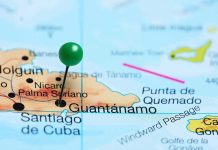
China’s aggressive infrastructure investments in the Bahamas, just 50 miles from Florida’s coast, are creating a serious national security threat that U.S. officials warn can no longer be ignored.
Key Takeaways
- China has invested billions in Bahamian infrastructure including a $40 million stadium, $3 billion mega-port, and the $3 billion Baha Mar Resort, establishing a significant foothold just 50 miles from U.S. shores.
- Military experts warn these dual-use infrastructure projects could enable intelligence gathering and surveillance operations targeting American interests.
- The Chinese-controlled British Colonial Hotel in Nassau, positioned directly across from the U.S. Embassy, raises particular concerns about potential espionage activities.
- The Bahamas holds strategic importance for U.S. military testing and space launch trajectories, making Chinese influence there especially concerning.
China’s Strategic Foothold Near American Shores
China has been methodically building its presence in the Bahamas through a series of major infrastructure investments that blend economic development with concerning geopolitical objectives. Just 50 miles from Florida’s coastline, these projects have caught the attention of U.S. security officials who see potential threats lurking behind seemingly benevolent development aid. The proximity to American territory makes these investments particularly troubling, as they could potentially be used for surveillance and intelligence gathering operations targeting the United States.
“The People’s Republic of China has been making diplomatic, economic and even military and quasi-military inroads into the Caribbean, South and Central America for the past couple of decades,” said retired Rear Admiral Peter Brown.
The scale of Chinese investment is staggering. Beijing has funded a $40 million national stadium, a $3 billion mega-port, and contributed $40 million for the North Abaco Port and Little Abaco Bridge. The China EXIM Bank has provided over $54 million in loans for highway development and nearly $3 billion for the massive Baha Mar Resort, creating a web of financial dependency that gives China significant leverage over the island nation. These investments have accelerated following natural disasters like Hurricane Dorian, when China positioned itself as a more reliable partner than the United States.
China is Flexing Its Muscle in the Caribbean, and That's a Problem For the United States https://t.co/822KJeTrh6 #China #Bahamas #Geopolitics
— Ward Clark (@TheGreatLander) April 28, 2025
Dual-Use Facilities and Security Concerns
Security experts are particularly troubled by what they call “dual-use” infrastructure projects along the Bahamas coastline. These facilities, while serving legitimate commercial purposes, could potentially support Chinese intelligence operations or even military activities in the future. The Chinese-controlled British Colonial Hotel in Nassau, located directly across from the U.S. Embassy, exemplifies these concerns. Its strategic positioning raises questions about potential surveillance activities targeting American diplomatic operations.
“It doesn’t take a lot of imagination for the People’s Republic of China to use its commercial footprint in the Bahamas to monitor, exploit and perhaps even do worse to [the] U.S.,” said Brown.
The Bahamas holds strategic importance for American military and space operations. The islands lie along critical paths for U.S. military testing and space launch trajectories. This geography makes Chinese intelligence gathering capabilities in the region particularly threatening to U.S. national security interests. Experts warn that if America doesn’t maintain its position as the Bahamas’ primary ally and trading partner, China stands ready to fill that role, potentially compromising U.S. security in its own backyard.
Chinese Larger Strategy and Florida’s Vulnerability
China’s regional strategy extends well beyond the Bahamas. From 2005 to 2022, China invested over $10 billion in just six Caribbean countries, establishing a significant economic presence throughout the region. Florida faces particular vulnerability to China’s Caribbean strategy due to its proximity and demographics. Vincent Wang, a political science professor, suggests China’s presence is part of a long-term geopolitical strategy that could eventually influence Florida’s elections and politics.
Governor Ron DeSantis has responded with measures to reduce Chinese influence, including laws against foreign technology purchases and property ownership by Chinese nationals. However, the 11th U.S. Circuit Court of Appeals temporarily halted a law banning Chinese nationals from buying Florida property, citing discrimination concerns. Security experts warn that China’s strengthened military ties with countries like Venezuela and its port operations throughout the region create multiple threats, including increased dependency, changes in trade standards, and expanded intelligence gathering capabilities that directly impact Florida’s security.









